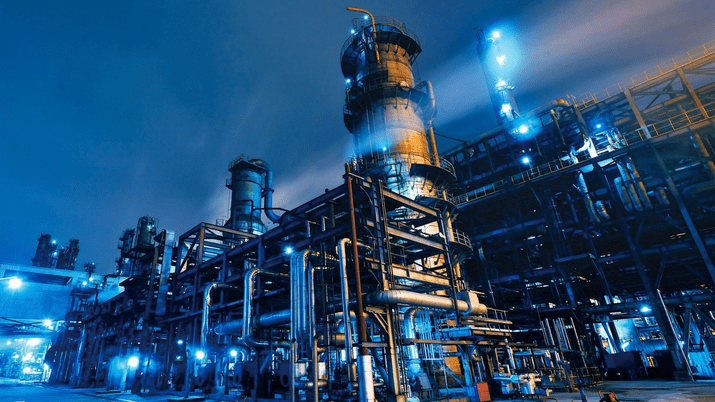
The Digital Doctor is In: AI and Telemedicine Redefine Healthcare
The healthcare industry is undergoing a seismic shift fueled by artificial intelligence (AI) and telemedicine.

Fuel oil and gasoline are the two most significant products in the oil and gas sector. Petrol is the main component in a variety of chemical products, such as drugs, insecticides, lubricants, and polymers. Petroleum is vital to many enterprises and is important to many nations as the foundation of their industries. The world is increasingly dependent on the oil and gas industry as transportation and economies around the world continue to be heavily dependent on items made from crude oil. The oil and gas industry still wields influence in international politics.
Distillate fuel oil includes things like heating oil and diesel fuel. Diesel engines are found frequently in heavy equipment, vehicles, buses, boats, motor cars, and power generators.
The role that the oil and gas industry plays in the modern world is an issue that is quite current. The two major fuel sources in the world, oil and natural gas, are the foundation of the energy sector and a major driver of the world economy. Production and distribution of oil and gas have extremely labor-and capital-intensive processes that use cutting-edge technology. A huge aspect of oil and gas is the number of jobs they create. The oil and gas industry generates billions of dollars and employs hundreds of thousands of people.
The oil and gas industries are referred to as the world’s powerhouse industries because they have the highest economic worth on the planet. Only one-fourth of all oil is used for other industrial uses; the rest is used for transportation (cars, trucks, and airplanes).
The future of gas and oil
Estimates of oil consumption will decline by 70% to 35 million b/d by 2050 as electric cars and hydrogen undercut the expansion of the road transportation sector and recycling limits the market for plastic feedstocks. But despite all the forecasts, we can affirm that the oil and gas sector continues to occupy a unique position in the global market landscape.
Businesses in the oil and gas industry are responding by reconsidering where and how they operate as well as their business models in light of a decarbonizing future. These businesses have a range of tools at their disposal for engaging in decarbonization operations in a way that enables them to take part in the decarbonizing economy.
According to research, population growth and economic expansion will be the key factors causing a 47% increase in the world’s energy demand in 2050. A constant rise in the market for fossil fuels and natural gas as energy sources goes hand in hand with this expansion.
Given that many nations and industries depend on these nonrenewable resources, the day may come when they run out. Because of this, oil and gas are expected to play a more significant role in the mix of renewable and nonrenewable energy sources in the future.
With an anticipated $5 trillion in worldwide revenue as of 2022, the oil and gas business is one of the largest in terms of dollar value. Oil has a significant impact on every aspect of the global economic system, including transportation, heating, energy, industrial output, and manufacturing.

The healthcare industry is undergoing a seismic shift fueled by artificial intelligence (AI) and telemedicine.

The healthcare and pharmaceutical sectors are navigating a transformative period, with technological advancements reshaping patient care, operational efficiencies, and strategic growth.

In the world of business, financial wizards wave their wands to conjure profits and success. But behind every great money magician …

Insurtech is not just making waves in the insurance industry—it’s rewriting the rulebook. As technology-driven startups disrupt …